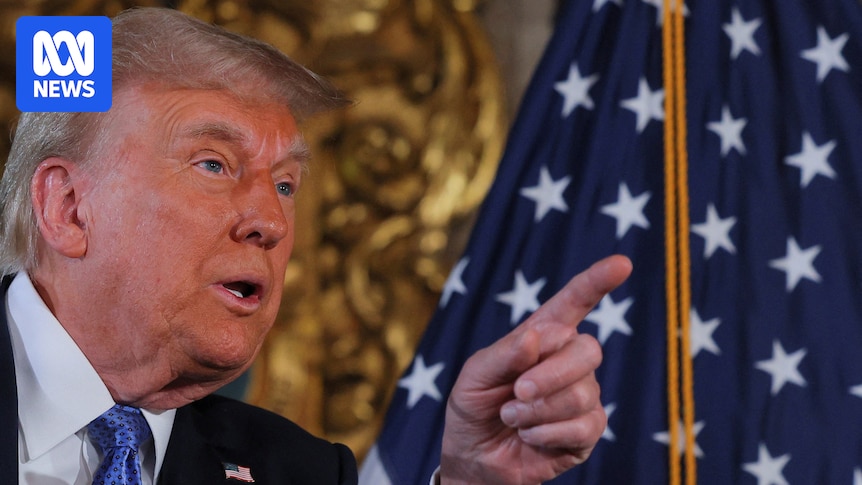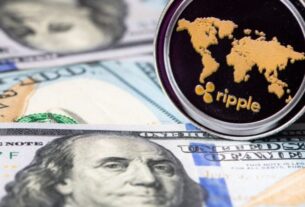- Experts reveal game-changing ways cryptocurrency can boost local economies — do the perks outweigh the cost?
- Hailey Welch Crypto Project Sued Over Hawk Tuah Memecoin
- Which crypto will explode in 2025? Expert insights and predictions
- What to Expect for the Cryptocurrency Market
- Things to Consider Before Investing in Cryptocurrency | Tutorials
It’s no secret that Donald Trump was dead against bitcoin and cryptocurrencies a few years ago.
Bạn đang xem: Donald Trump will do something ‘crazy’ or ‘something great’ with bitcoin strategic reserve policy
During his first term as US president, Trump said cryptocurrencies are “not money”, and that its value was “highly volatile and based on thin air”.
Fast forward to 2024, the Republican politician changed his tune.
During his re-election campaign, Mr Trump was the headline speaker at a bitcoin convention. He launched his own crypto venture (World Liberty Financial) and received millions of dollars in donations (in the form of bitcoin, ether and XRP) from supporters, including a handful of pro-crypto billionaires.
Since pledging to make America the “crypto capital of the planet”, Trump’s promises to enact pro-cryptocurrency policies have helped push the value of bitcoin to new records (as high as $US108,000 ($173,000) in mid-December).
Trump has also appointed cryptocurrency advocates to key roles in his administration.
However, one of Trump’s more controversial policies is the creation of a “strategic bitcoin reserve” — which would essentially require the US to stockpile bitcoin and hold onto it for a substantial period of time.
At this stage, there isn’t much detail on what a strategic reserve would look like.
Some analysts expect the value of the highly volatile cryptocurrency to keep rising, particularly if the US government is using taxpayer money to purchase large amounts.
Loading…
What is a strategic reserve?
When people talk about “strategic reserves”, they’re most likely thinking about oil.
One of the best-known examples is the US Strategic Petroleum Reserve (SPR), an emergency stockpile of crude oil that was created by Gerald Ford’s government in 1975.
This was in response to the Arab oil embargo, which caused great damage to the US economy (with petrol prices, inflation and unemployment surging).
More recently, in 2022, these crude stockpiles came in handy — when the Biden administration released a record 180 million barrels from the SPR to dampen the impact of an oil price spike caused by Russia’s invasion of Ukraine.
China also has strategic reserves, containing millions of tonnes worth of copper, aluminium, zinc and other metals that are crucial to its property and tech industries.
Canada also gets a special mention for being the only country to have a maple syrup strategic reserve — the supply of which fell to 3.1 million kilos last year, its lowest in 16 years.
The idea is that these commodity stockpiles can be released during emergencies, to minimise the impact of supply shortages and inflation shocks.
Xem thêm : ‘Stablecoin Sandwiches’ and Other Crypto Terms
It’s quite clear that bitcoin, which has only been in existence for 15 years, has nothing in common with oil, industrial metals and maple syrup.
While a backup supply of oil, for example, can be used as fuel for tanks and fighter jets during national emergencies, the usefulness of bitcoin as an emergency resource is questionable.
And while the government buying bitcoin could help crypto investors by driving up prices, its benefits to the economy are harder to discern.
The practicality of a bitcoin reserve
Mr Trump told a crowd of supporters at the Nashville Bitcoin Convention in May that the US government would never sell off its bitcoin holdings if he won the election.
“For too long, our government has violated the cardinal rule that every bitcoiner knows by heart: Never sell your bitcoin,” he said at the time.
But the United States already owns around 200,000 bitcoin tokens worth more than $US21 billion ($33.6 billion).
It was the result of the US government seizing bitcoin from criminal syndicates, including its high-profile shutdown of illegal drug marketplace Silk Road.
At this stage, the most concrete proposal for a bitcoin reserve comes from a pro-crypto junior Republican senator called Cynthia Lummis. (She previously interviewed for the role of Trump’s interior secretary, but was unsuccessful).
In July, she circulated a bill in Washington (yet to gain traction in the House of Representatives), which would set up the US bitcoin reserve.
The Wyoming senator’s bitcoin bill, if enacted into law, would require Treasury to buy 1 million bitcoin tokens over a five-year period — with the funding to come from the Federal Reserve’s deposits and gold supplies.
The US would end up owning around 5 per cent of the world’s bitcoin supply — capped at roughly 21 million — under her proposal, and the government would have to maintain the bitcoin stockpile for at least 20 years.
Critics say Lummis’s bill, if it were to be seriously considered by Congress, would face significant roadblocks — at the very least because it would likely involve the US government adding to its already exorbitant $US36 trillion national debt.
And recent drama in the House of Representatives showed any proposal to increase spending and raise the debt ceiling (even to avoid a government shutdown) would face stiff opposition.
Even from within Trump’s own party, 38 Republicans crossed the floor to vote with the Democrats in rejecting a spending bill the incoming president had backed.
Given that Republicans have a slim majority in the House (220 seats versus the Democrats’ 215) — and the fact they’re not a unified cohort — it’s highly unlikely a bitcoin strategic reserve would be anywhere near the top of their legislative priorities.
In addition, if the Trump administration needs to fund bitcoin purchases by issuing new Treasury debt, it would likely face strong resistance from the US Federal Reserve.
Last week, Federal Reserve chair Jerome Powell said the US central bank was not looking to hold bitcoin in its reserves.
“We’re not allowed to own bitcoin,” Mr Powell said.
Xem thêm : Memecoins: Scheme-Coins Or Valuable Digital Assets
“The Federal Reserve Act says what we can own, and we’re not looking for a law change. That’s the kind of thing for Congress to consider, but we are not looking for a law change at the Fed.”
Federal Reserve chair Jerome Powell says the US central bank is not looking to hold bitcoin in its reserves. (AP: Jacquelyn Martin)
Protection against inflation or a ‘crazy’ idea
Earlier this month, Trump told CNBC: “We’re gonna do something great with crypto because we don’t want China, or anybody else … but others are embracing it, and we want to be ahead”.
Essentially, the argument is that if the US doesn’t hoard bitcoin, China and other geopolitical rivals will do it.
So, fear of missing out (FOMO) and potential geopolitical risks (if US adversaries were to amass a huge supply of cryptocurrency) are factors to consider.
Ms Lummis claims her proposed legislation could result in the US slashing its debt in half in 20 years.
“What that does is help us protect ourselves against inflation and protect the US dollar on the world stage,” she told Fox Business in November.
She also wrote, in a letter published in the Wall Street Journal: “While there may be short-term volatility, over the long term a bitcoin reserve like this will serve as an important and stable store of value.”
But that’s assuming the value of bitcoin continues to rise in the long term (which is not guaranteed, despite what its true believers argue).
While the government buying bitcoin could help crypto investors by driving up prices, its benefits to the economy are harder to discern. (Supplied: Pixabay)
On the other hand, former Treasury secretary Larry Summers has dismissed Trump’s idea of a bitcoin reserve as a “politically motivated” move to prop up its value and reward the president-elect’s major donors.
“Some of what is being said, this idea that we should have some kind of national bitcoin reserve, is crazy,” he said in an interview with Bloomberg in early December.
“Of all the prices to support, why would the government choose to support, by accumulating a sterile inventory, a bunch of bitcoin.”
“There’s no reason to do that other than to pander to generous special-interest campaign contributors.”
While bitcoin is hovering near record highs, it has experienced dramatic sell-offs, or “crypto winters”, in the past.
More recently, its value plummeted more than 70 per cent between November 2021 and November 2022.
Although it has since rebounded above $US100,000, that outcome (as well as the result of the US election, and the crypto policies that would be introduced) were by no means certain.
Given its huge price swings and ongoing volatility, there’s always a risk that a taxpayer-funded purchase of bitcoin could end up threatening US financial security — instead of protecting it.
What happens to the price is anyone’s guess.
Nguồn: https://gapinsurance.click
Danh mục: News




